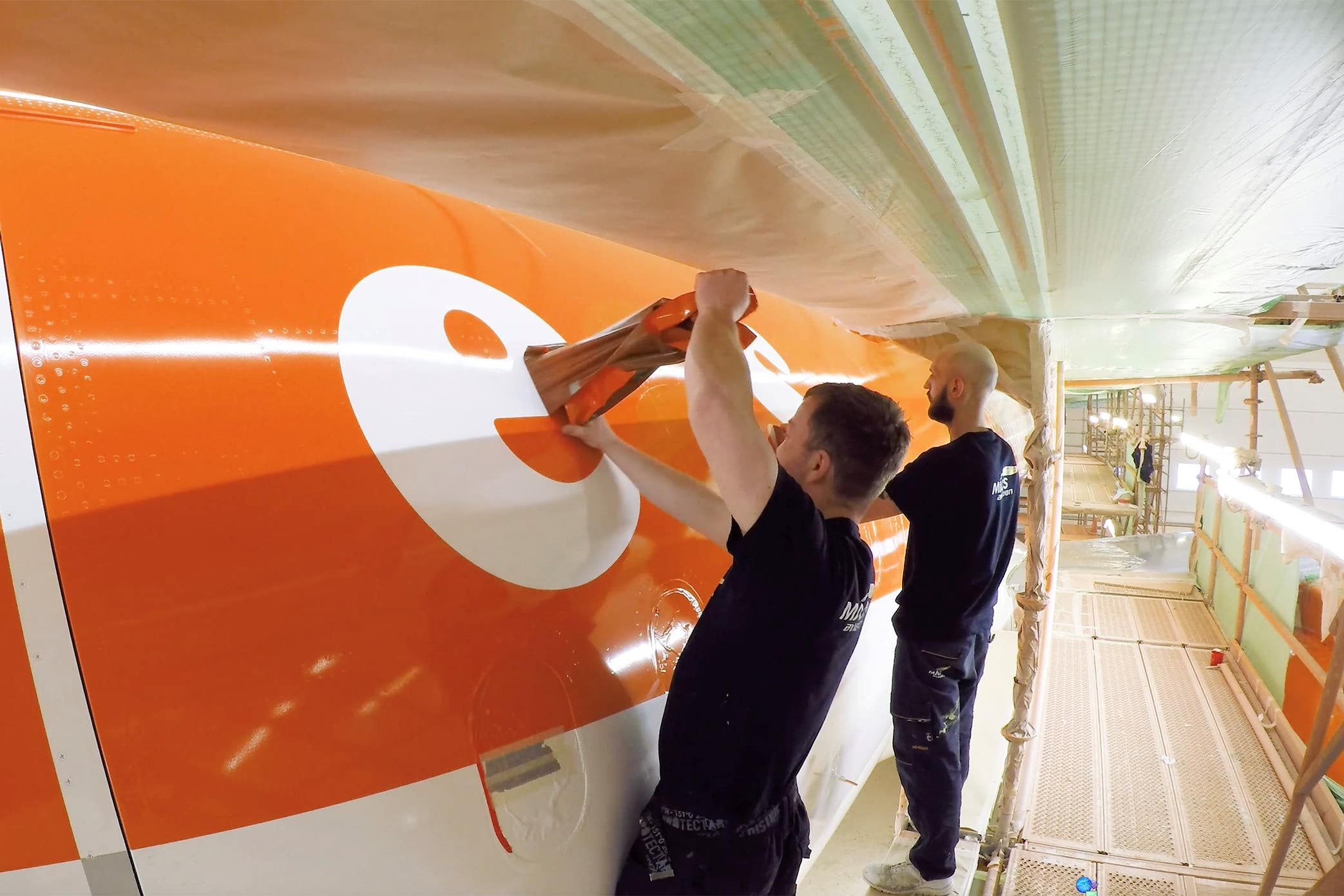The company has discovered a novel method to make its aircraft even lighter - a reduction in paint.
The low-cost airline giant has become the world's first airline to use a lighter paint finish on its planes to decrease their fuel consumption.
and white livery.
The pioneering approach, developed in partnership with Mankiewicz Aviation Coatings, simplifies the painting process, needing fewer coats to produce the airline's distinctive orange and white colour scheme.
It's a relatively modest weight of 27kg, EasyJet highlights that this is just one of many steps being taken to enhance fuel efficiency across its fleet. Each kilogram saved results in a reduction in fuel consumption and, as a result, a smaller carbon footprint.
The method, developed in conjunction with international company Mankiewicz Aviation Coatings, has been used on 38 easyJet aeroplanes so far.
EasyJet estimates that the annual fuel saving will be 1,296 tonnes once the fleet-wide roll-out is finished by 2030.

The airline's Director of Sustainability, Lahiru Ranasinghe, stated: "EasyJet is continually investigating and improving innovative solutions to reduce the effects of our operations.
This forms a small part of a larger strategy, however developing a new lightweight paint with our partners at Mankiewicz Aviation Coatings shows how we're reviewing every aspect of our operation to uncover efficiency improvements to assist us in achieving this mission.
In 2022, easyJet vowed to reach a 35% decrease in carbon emissions per passenger kilometre by 2035 compared to 2019 levels.
It was mentioned in September of last year that they had achieved a 5% improvement up to that point in time, primarily due to the fact that they were flying more efficient aircraft.
The Government’s sustainable aviation fuel (SAF) legislation has come into effect today, Wednesday.
As from 2025, Saf must constitute at least 2% of all jet fuel utilised for flights departing from airports within the UK.
The proportion is forecast to increase each year, reaching 10% by 2030 and 22% by 2040
Saf is viewed as crucial in cutting the aviation industry's carbon emissions.
The fuel is made from sources such as agricultural waste and used cooking oil, meaning its production involves using about 70% less carbon than conventional jet fuel, a type of kerosene.
The government also plans to establish a new organisation to enhance flight routes.
Department for Transport officials believe that allowing planes to use modern navigation systems will increase efficiency, including reducing the need for aircraft to enter holding patterns before receiving clearance to land at busy airports.
EasyJet, previously, stated that the inefficient use of airspace is responsible for rises in both fuel consumption and carbon emissions, as well as flight durations.
The carrier described the problem as a "universal issue" right throughout Europe, but said the "greatest inefficiencies" for its operations are in the UK.
.

